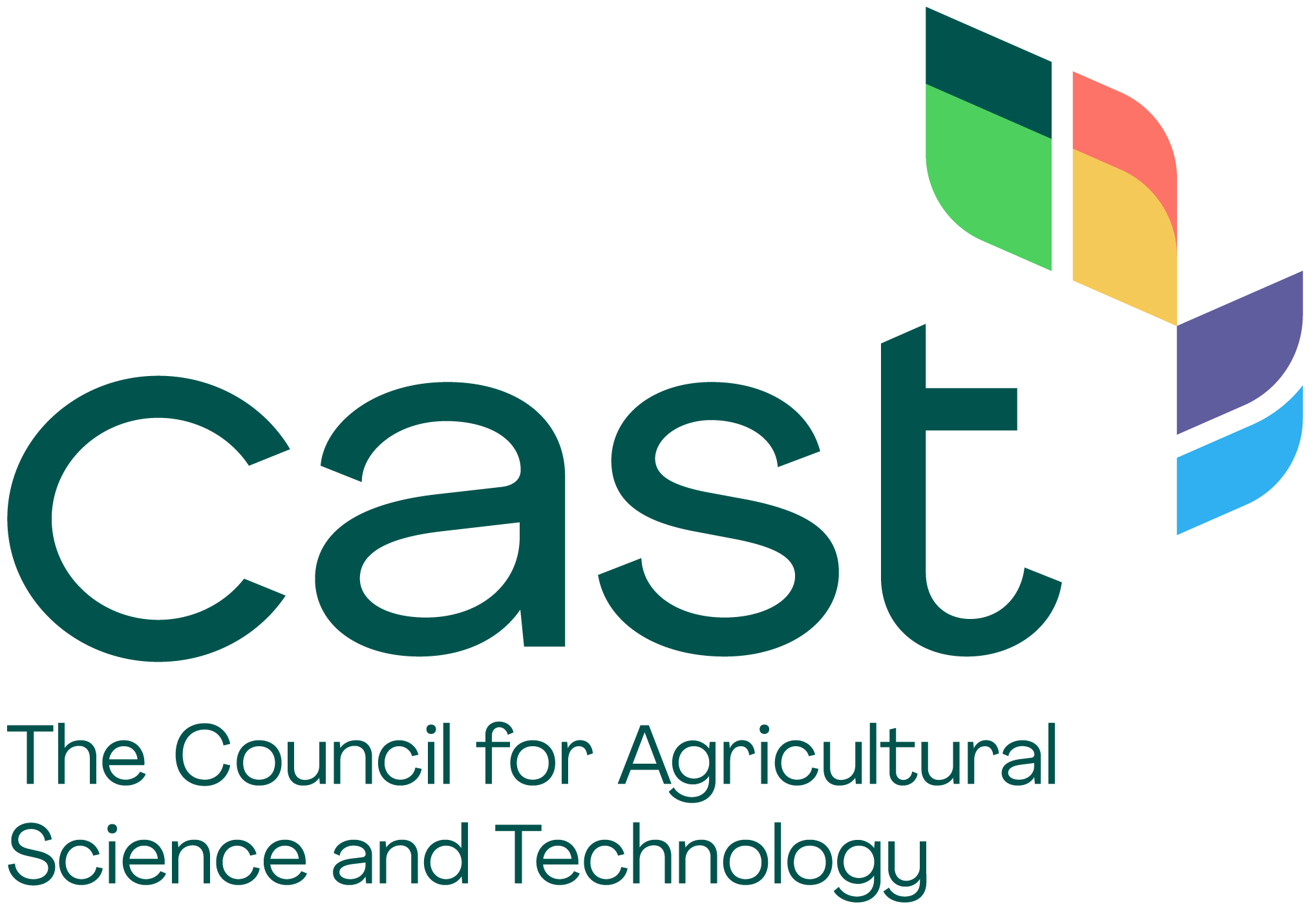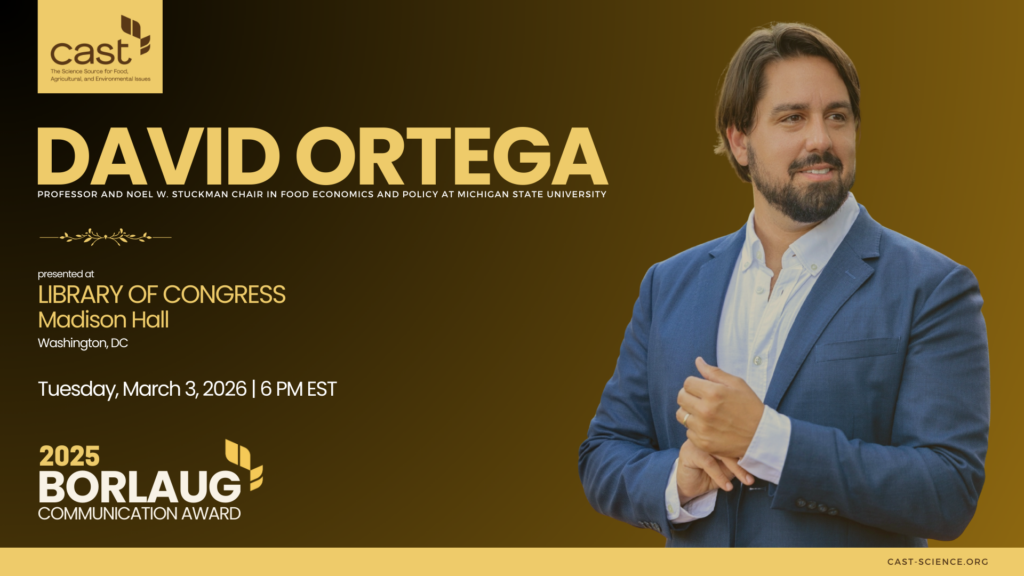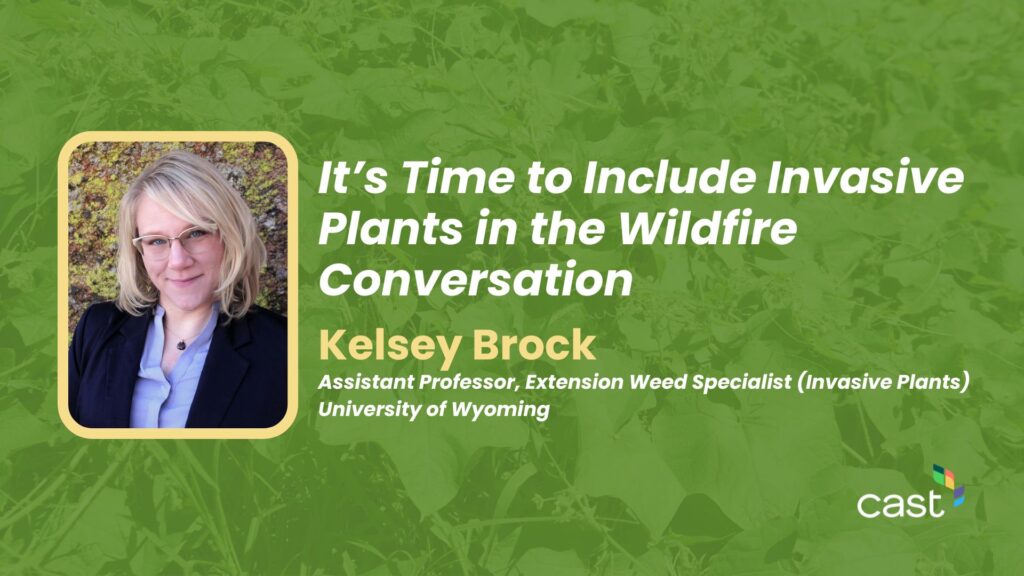The Council for Agricultural Science and Technology (CAST) is proud to announce its partnership with U.S. Farmers & Ranchers in Action (USFRA) to release the report, Potential for U.S. Agriculture to Be Greenhouse Gas Negative. This report, compiled by Jerry L. Hatfield, Ying Wang, Marty D. Matlock, and Charles W. Rice, provides a comprehensive analysis of how U.S. agriculture can reduce greenhouse gas (GHG) emissions and potentially achieve net-negative emissions.
In 2020, USFRA established an independent scientific working group to explore the viability of U.S. agriculture as a GHG-negative emitter. This analysis builds on the 2019 National Academy of Sciences report titled “Science Breakthroughs to Advance Food and Agricultural Research by 2030.” It is grounded in extensive research, including scientific literature reviews, computer simulations, and life cycle analyses. The final report outlines actionable strategies for reducing emissions while enhancing carbon sequestration.
“This report represents a pivotal step toward transforming agriculture into a key player in combating climate change,” said Chris Boomsma, Chief Executive Officer of CAST. “By collaborating with USFRA, we aim to disseminate these vital findings and promote practices that can lead to a more sustainable and resilient agricultural system.”
Webinar Release
CAST will host an exclusive webinar on Tuesday, Nov. 12, from 2 p.m. to 3:30 p.m. to unveil the report’s findings. The event will highlight critical insights into current practices and emerging technologies that could significantly contribute to sustainable agricultural practices and climate change mitigation.
Webinar Highlights:
- Insights into practices and technologies that can effectively reduce emissions
- Strategies for achieving net-negative emissions through carbon sequestration
- Research directions essential for advancing GHG-negative agriculture
This event is essential for researchers, industry leaders, policymakers, and anyone committed to promoting sustainable agriculture. Participants will gain valuable knowledge on how agriculture can be pivotal in addressing climate change.
Registration is FREE but required. Secure your spot by registering here.
___
About the Report: The report, Potential for U.S. Agriculture to Be Greenhouse Gas Negative, was compiled by Jerry L. Hatfield (Retired USDA-ARS Laboratory Director, National Laboratory for Agriculture and the Environment, Ames, Iowa), Ying Wang (Previous Research Associate, U.S. Farmers and Ranchers in Action, Chesterfield, Missouri), Marty D. Matlock (Professor, Department of Biological and Agricultural Engineering, University of Arkansas, Fayetteville, Arkansas), and Charles W. Rice (University Distinguished Professor, Mary L. Vanier University Professorship, Department of Agronomy, Kansas State University, Manhattan, Kansas). It explores the potential for U.S. agriculture to reduce greenhouse gas emissions and achieve net-negative emissions through reduced emissions and increased carbon sequestration. The report provides actionable strategies and identifies research directions necessary to support GHG-negative agriculture.
About USFRA: U.S. Farmers & Ranchers in Action (USFRA) is a coalition of farmers, ranchers, and agribusinesses committed to advancing sustainable agriculture. USFRA collaborates with stakeholders across the food and agriculture value chain to drive innovation and implement practices that enhance environmental stewardship, economic viability, and social responsibility.
For more information, please visit USFRA’s website.
About CAST: The Council for Agricultural Science and Technology (CAST) is a nonprofit organization that provides sound science-based information on agricultural and food issues. CAST’s mission is to serve as a trusted source for science communication, bringing together diverse expertise to address critical challenges facing agriculture and the food system. Through collaborations, educational initiatives, and resource development, CAST promotes understanding and informed decision-making in agricultural science and technology.
For more information, please visit CAST’s website.
Social Media: Follow CAST on social media for updates:
- Twitter: @CASTScience
- Facebook: CASTScience
- LinkedIn: CASTScience





